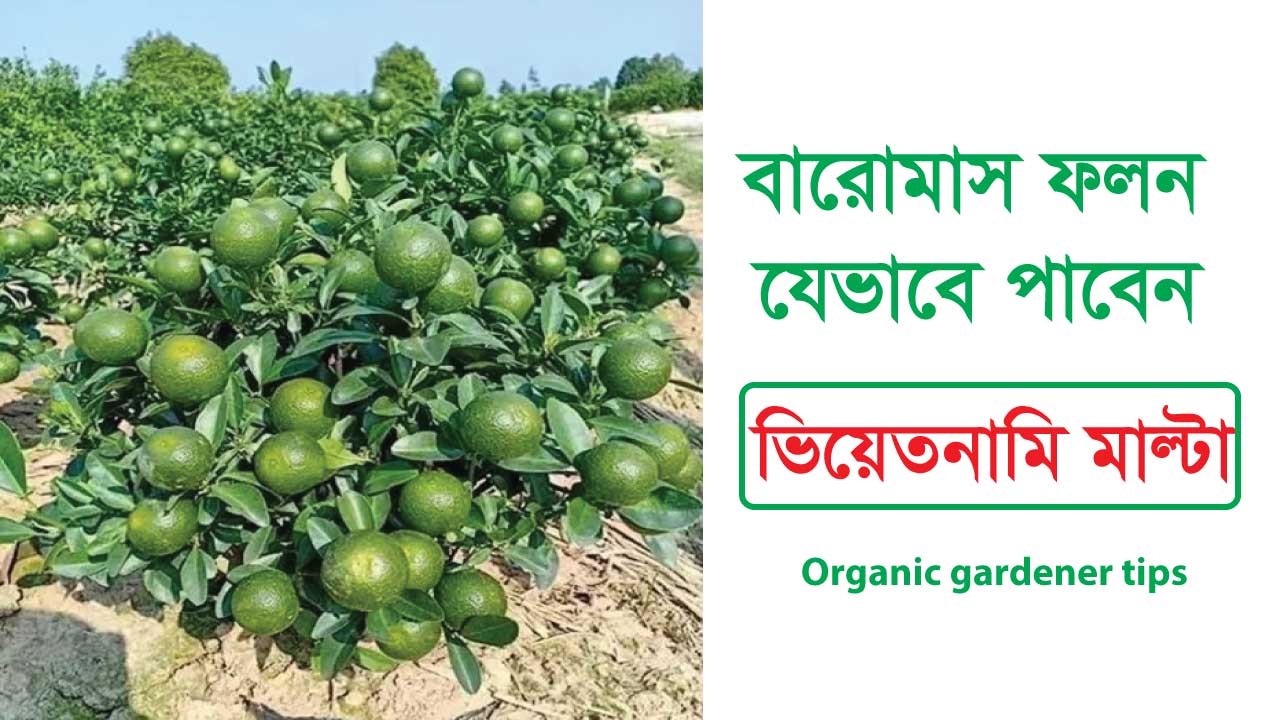Vietnam Malta, a citrus variety cherished for its unique flavor and robust growth, is gaining popularity among gardeners worldwide. Originating from Vietnam, this variety offers a delightful combination of sweetness and tang, making it a favorite for fresh consumption and juicing. In this article, we will explore the origins, characteristics, cultivation practices, and benefits of growing Vietnam Malta, providing you with the knowledge needed to successfully cultivate this exotic citrus in your garden.
Origin and Background of Vietnam Malta
It is a relatively new addition to the global citrus family, gaining recognition for its adaptability and unique flavor profile. This variety is believed to have originated in the fertile regions of Vietnam, where the climate and soil conditions are ideal for citrus cultivation. Over time, Vietnam Malta has been introduced to other tropical and subtropical regions, where it has quickly become a favorite among citrus growers.
Distinctive Characteristics of Vietnam Malta
It is distinguished by several key characteristics that set it apart from other citrus varieties:
- Flavor and Texture: It is celebrated for its distinctively sweet and tangy flavor, with a hint of floral notes. The fruit’s flesh is juicy and tender, with a texture that makes it ideal for fresh consumption and juicing.
- Appearance: The fruit is medium-sized, with a smooth, bright orange skin that is easy to peel. The segments are plump and contain few seeds, making it convenient for eating.
- Growth Habit: Vietnam organge trees are known for their vigorous growth and compact size, making them suitable for small gardens and container planting. The trees have dark green, glossy leaves and produce fragrant white flowers that attract pollinators.
- Yield: This variety is a prolific producer, with mature trees yielding an abundant harvest of fruit. Under optimal conditions, Vietnam Malta can produce fruit multiple times a year, providing a continuous supply of fresh citrus.
- Climate Adaptability: It thrives in tropical and subtropical climates, making it well-suited to regions with warm temperatures and high humidity. However, it can also adapt to cooler climates if protected from frost.
Cultivating Vietnam Malta: Best Practices
To successfully grow Vietnam Malta in your garden, it’s important to follow specific cultivation practices tailored to this variety:
- Soil Requirements: It prefers well-drained, sandy-loam soils rich in organic matter. Ensure the soil has a slightly acidic to neutral pH (between 6.0 and 7.0) for optimal growth.
- Planting Location: Choose a sunny location that receives at least 6-8 hours of direct sunlight daily. If planting in containers, ensure the pots have good drainage to prevent waterlogging.
- Watering: Regular watering is essential, especially during dry spells. However, avoid overwatering, as Vietnam Malta is susceptible to root rot. Mulching around the base of the tree can help retain moisture and regulate soil temperature.
- Fertilization: Apply a balanced, slow-release citrus fertilizer during the growing season to support healthy growth and fruit production. Organic compost or manure can also be used to enrich the soil and improve fertility.
- Pruning: Prune Vietnam Malta trees to maintain their shape and encourage air circulation. Remove any dead or diseased branches and thin out the canopy to allow sunlight to reach the inner branches.
- Pest and Disease Management: Although it is relatively resistant to common citrus pests, it’s important to monitor for aphids, scale, and citrus leaf miners. Use organic insecticides or neem oil to control infestations. Regularly inspect the tree for signs of disease, such as citrus greening or root rot, and take prompt action if detected.
- Harvesting: Vietnam Malta fruits are typically ready for harvest when they turn a bright orange color and are firm to the touch. Gently twist or cut the fruit from the tree to avoid damaging the branches.
Benefits of Growing Vietnam Malta
Growing Vietnam Malta offers numerous benefits, both for personal enjoyment and commercial purposes:
- Nutritional Value: Vietnam Malta is packed with Vitamin C, antioxidants, and essential nutrients that boost the immune system, improve skin health, and support overall well-being.
- Culinary Versatility: The sweet-tangy flavor of Vietnam Malta makes it a versatile ingredient in a variety of culinary applications, from fresh salads and desserts to refreshing juices and cocktails.
- Economic Potential: Due to its high yield and market demand, It can be a profitable crop for farmers and home gardeners. The fruit’s exotic appeal adds value, making it a sought-after commodity in local and international markets.
- Adaptability to Small Spaces: It’s compact growth habit and suitability for container planting make it an ideal choice for urban gardeners with limited space. It can thrive in rooftop gardens, balconies, and small backyard plots, allowing gardeners to enjoy fresh, home-grown citrus even in confined areas.
- Sustainability: By choosing to grow Vietnam Malta organically, gardeners can contribute to sustainable agricultural practices, reducing the reliance on chemical fertilizers and pesticides. The variety’s natural resilience to pests and diseases further supports eco-friendly gardening.
Conclusion
Vietnam Malta is a standout citrus variety that combines unique flavor, high yield, and adaptability, making it a valuable addition to any garden. Whether you are an experienced gardener or a beginner, this variety offers the opportunity to enjoy fresh, delicious citrus fruits while also contributing to sustainable gardening practices. With the right care and attention, Vietnam Malta can thrive in various growing conditions, providing a continuous supply of nutritious, flavorful fruit year after year.
Happy gardening, and may your Vietnam Malta trees flourish!
